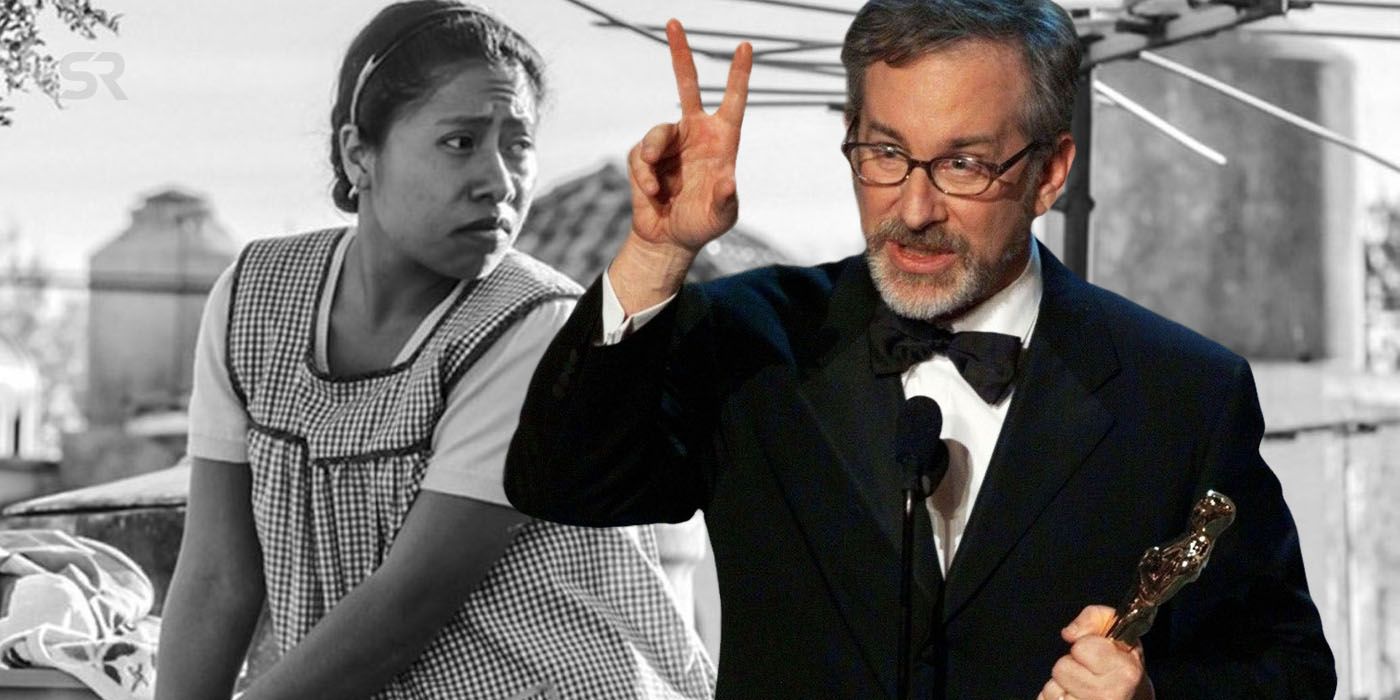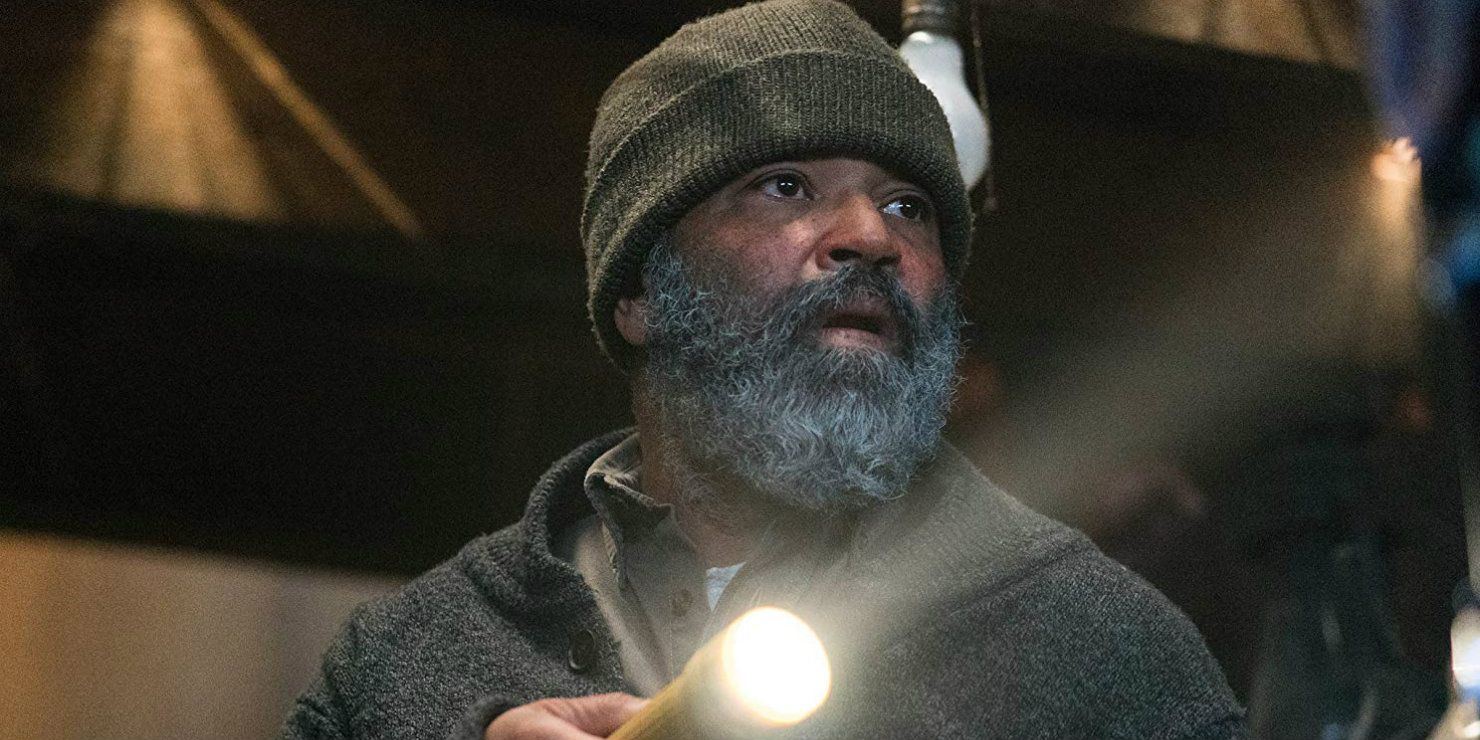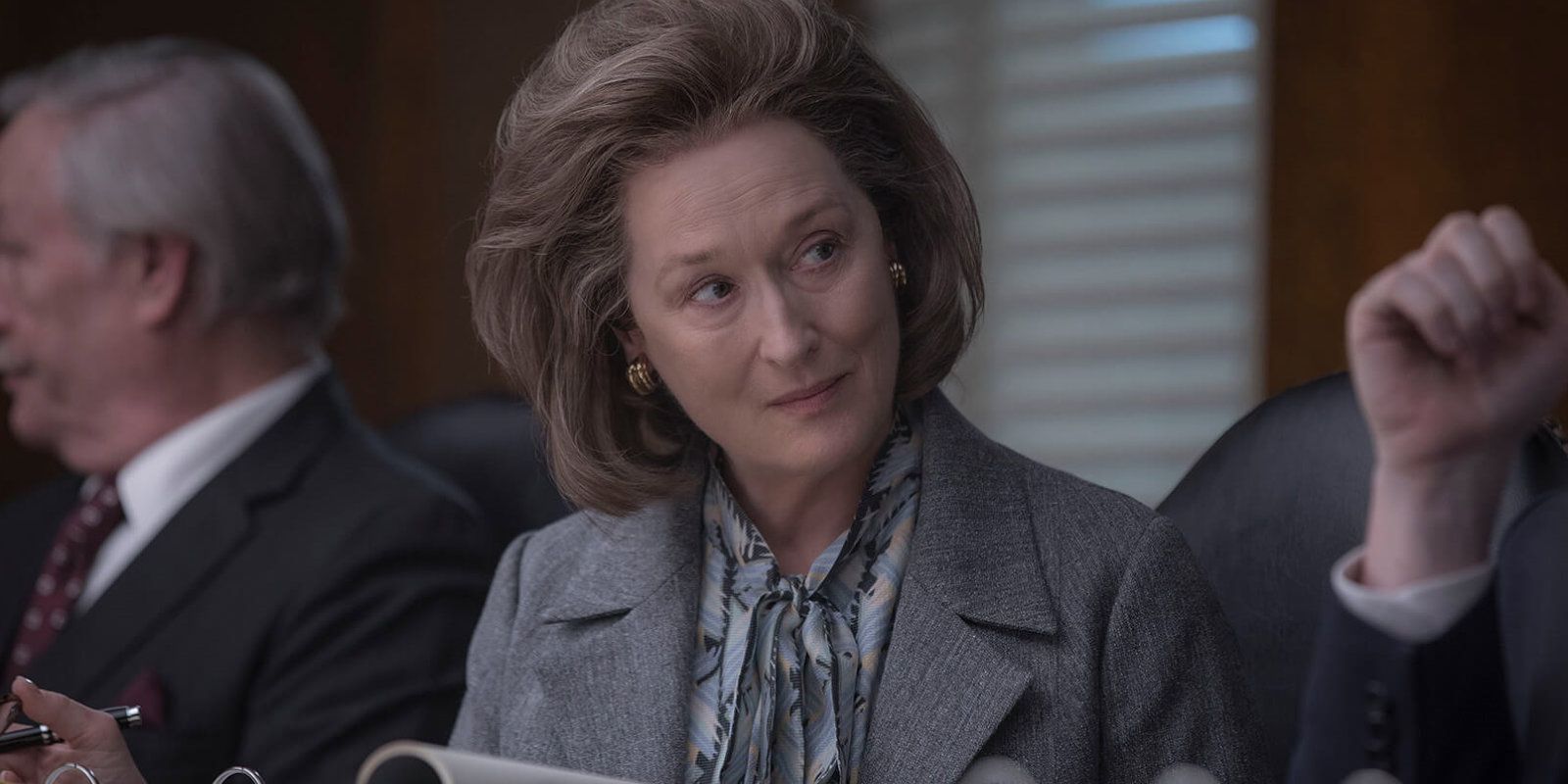As Steven Spielberg tries to rally the Academy to shut out Netflix films from future Oscar consideration, his stance could have serious repercussions for the film industry. While Spielberg may be one of the few undisputed masters of Hollywood, he’s been notably stubborn on the topic of home releases. Long before Netflix was the norm, Spielberg fought against VHS releases. He famously did not want E.T. The Extra-Terrestrial, at the time his most profitable film ever, to get a home release for fear it would affect the cinematic experience and force theatrical releases to shorten. When he eventually relented in 1986, it was mostly to fight against piracy, although it probably did not hurt that the VHS grossed over $250 million in revenue.
As home streaming and shortened cinematic releases became the norm, Spielberg seemed to soften on the idea, even becoming one of the biggest names to back Napster founder Sean Parker's plans to make major blockbusters available for home viewing on the day of their cinematic releases back in 2016. However, it seems that Netflix is a bridge too far for him. Following Roma’s three Oscar wins at this year’s Academy Awards, including prizes for Best Foreign Language Film and Best Director for Alfonso Cuarón, the Netflix debate has once again reared its ugly head among Hollywood’s elite. Spielberg had already made it clear that he believed Netflix's films qualified as "TV movies”, saying in an interview:
“Once you commit to a television format, you’re a TV movie. You certainly, if it’s a good show, deserve an Emmy, but not an Oscar. I don’t believe films that are just given token qualifications in a couple of theaters for less than a week should qualify for the Academy Award nomination.”
Related: Why The Oscars (and Steven Spielberg) Will Struggle To Push Netflix Out
Spielberg also took umbrage with how Netflix gamed the system to qualify for Oscars by doing the bare minimum theatrical release. Now, per multiple reports, he is expected to speak out at the next Academy Governor's Board meeting in favor of rules changes that would greatly hinder Netflix titles and their ability to qualify. Aside from the limited theatrical release Netflix films gets, the major sticking point for Spielberg and his supports on this battle seems to be the sheer amount of money Netflix have spent in their Oscars fight. Netflix allegedly spent over $50 million marketing for awards season this year, which is about ten times the average traditional studios spend, and they famously don't report on the box office returns of the movies they do rent out to theaters (this renting process also means they keep all the gross for themselves).
At best, this fight seems like an honorable but misguided attempt to protect one of the basic tenets of the film-going experience. At worst, it seems like a hopelessly out-of-touch battle cry that ignores the realities of an ever-evolving industry. Directors like Ava DuVernay (whose documentary 13th and upcoming series When They See Us are Netflix exclusives) have spoken out against Spielberg’s stance, expressing support for how Netflix has invested in more diverse film-making and the kinds of projects the traditional studio systems won’t always fund. Whatever your opinion on Netflix (and there are plenty of reasons to be skeptical about the streaming giant) it seems foolish to claim that work like Roma should be excluded from the industry’s most prestigious award on the grounds that it was made primarily for a home release.
- This Page: Why Netflix Movies Deserve a Shot at the Oscars
- Page 2: How Spielberg's Changes Could Harm his Own Films
Netflix Films Are Not the Same as TV Movies
On its most basic level, it feels ludicrous to dismiss something as layered and undeniably cinematic as Roma as a "TV movie." Contrary to a lot of reports, Netflix didn’t actually fund Cuarón’s movie; they merely paid to distribute it as his own production company paid for the film itself. It was made to be viewed as a film and it meets all the criteria, even as a Netflix exclusive. Television films, or made-for-TV movies, are a major part of TV history. In the 1960s, as televisions became commonplace in American homes, these projects were ways for networks to compete with cinemas, and some of them managed to garner tens of millions of viewers. Some were so popular that they ended up with theatrical releases. Even Spielberg got his start in this field, as his debut feature Duel was made for ABC (it was so well received that it received a limited cinema release in America before being distributed theatrically in Europe and Australia).
TV movies are typically viewed as lesser pieces of entertainment, perceived as being of lower quality and un-cinematic in style when compared to their Hollywood counterparts (an attitude that has plagued television in general since its inception). This has changed dramatically over the past decade and a half as "Peak TV" has dominated the cultural landscape. Television started to look more like movies and it started to replicate its structures. The lines between TV and film have blurred in ways few could have predicted, and the results have been striking. The budgets are getting bigger, the star power has increased, and creators can now do things on TV they may not even have been able to do on film. Steven Soderbergh, for example, could not get a studio to fund his Liberace biopic, Behind the Candelabra, because they were too put off by the gay content, so HBO stepped in and it went on to win multiple Emmys (it received theatrical releases internationally and even competed for the Palme D'Or at the Cannes Film Festival). Soderbergh now has two movies premiering on Netflix in 2019, including High Flying Bird.
Related: 10 Shows That Will Be Making A Jump To Netflix This Year
However, despite this period of flux, it would still be inaccurate to label Netflix’s original films as TV movies. How does one look at the Coen Brothers’ The Ballad of Buster Scruggs or Dee Rees’ Mudbound and think that they meet the criteria for made-for-TV movies? Just because a film is not exclusively created to premiere in a theater, that does not rob it of its cinematic qualities. If that were the case, home releases would declare the entire medium null and void.
Netflix Allows Smaller Films to Reach a Wider Audience
There has been much debate over the effectiveness of Netflix’s model. Sure, it's easily the most popular streaming service on the market and opens up entertainment to audiences it may not have previously been able to reach, but questions remain over the veracity of its claims. Netflix famously don’t release viewership numbers or evidence to back up their own boasts, so much of the claims of their democratizing of content can’t be backed up in this regard. However, the mere accessibility of what they offer is undeniably powerful. Even only a decade ago, it seemed unfeasible that tens of millions of people could access such an array of film, television and documentaries without leaving the house. In parts of the world without well-supported art-house cinemas, Netflix may be the only way some people can see, for example, Ava DuVernay’s 13th or the Oscar winning documentary Icarus.
Netflix is also one of the few studios putting real money and clout into these kinds of mid-budget films. Traditional Hollywood has essentially killed the mid-budget movie, leaving the gap between small-budget indies and mega-money blockbusters to widen even further. In that sense, Netflix has really picked up the slack with films like Okja, The Meyerowitz Stories, Hold the Dark, Mudbound, Bird Box, and much more. The revival of the rom-com last year was, bar the exception of Crazy Rich Asians, almost exclusively a Netflix phenomenon. Genres and stories that were previously dismissed as fads nobody wanted to see were given new life through streaming.
Spielberg is aware of this too. In the same interview where he denied the cinematic status of Netflix films, he also acknowledged, “A lot of studios would rather make branded, tent-pole, guaranteed box office hits… than take chances on smaller films. And those smaller films that studios used to make routinely are now going to Amazon, Hulu, and Netflix.”
Netflix is, of course, not alone in this endeavor. Amazon has also invested in auteur driven indie cinema over the past few years and won a few Oscars for their efforts, but they operate more like an indie distribution company than a streaming service, offering proper cinematic releases for their projects. But A24 can’t be expected to bear the entire burden of indie cinema in 2019. If Netflix wants to share the load and film-makers want that kind of potential audience, one shouldn’t be surprised when the streaming service becomes so favored by film-makers. Issues remain over Netflix’s abilities to fully promote their sheer amount of content, but when there are no other options on the table because Hollywood has taken them all away, Spielberg and co. can’t really complain.
Page 2: How Spielberg's Changes Could Harm his Own Films
Spielberg's Proposed Changes Could Harm His Own Films
Spielberg and a group of Academy members are pushing for changes that will require movies to have an exclusive theatrical window of at least four weeks to be eligible for the Oscar. This would increase the current period of eligibility by three weeks. They also wish to push Netflix to disclose box office numbers. Everyone else in the Academy has to so why shouldn’t they? The latter is fair enough, and it does seem ridiculous that Netflix continues to exploit that loophole, but the issue of the streaming service "gaming the system" is one that runs far deeper than the actions of one company. To complain about a single studio playing the awards season cycle by its shrewdest interpretation ignores how basically everyone’s been doing that for the past few decades.
The Oscar cycle that studios live by to this day was mostly defined by Harvey and Bob Weinstein in the 1990s. The now disgraced moguls essentially shaped how films are marketed in terms of their awards potential, thanks to big winning titles like The English Patient and Shakespeare in Love. They weren’t the first to use this model but they did perfect it: Release your film on the festival circuit to build up buzz, give it the bare minimum qualifying release (one week in Los Angeles and New York before December 31), outspend your competition in marketing, then leverage awards buzz and nominations to promote the film in the following year. Miramax in particular were smart with how they harnessed the Oscars as a means to promote movies rather than the other way around. While there have been exceptions to this rule, it’s still a system many studios adhere to, in part because it can be more cost effective.
Related: Netflix: What’s New To Watch This Weekend
Spielberg isn't above it either. 2017's The Post went into limited release in the United States on December 22, then went into wide release on January 12 the following year. By that point in time, the Golden Globes had happened, and while The Post didn't win any of its six nominations, the buzz was sufficiently built. Spielberg is hardly alone in this shrewd playing of the awards season rules. The problem is that film-makers like him and those on a similar level of acclaim and box office force won’t be the ones hurt by these proposed rule changes. Much smaller distributors and indie films will.
Streaming Can Coexist With the Theatrical Experience
It is noble that Spielberg and others wish to preserve the cinematic experience. However, doing so is not mutually exclusive with embracing the evolution of film to include titles that are not initially designed for a theatrical distribution. There is no reason the industry should roll over to welcome Netflix – frankly, there is a lot the streaming service needs to do to build trust before that can happen – but it would be detrimental to the Academy to dig its heels in on the inevitability of progress. Change has happened at an enormous pace within the entertainment industry, and that must be daunting for the old guard, but it can’t and shouldn’t be hindered in the name of tradition that has always been exclusionary and disadvantageous to film itself.
Roma represented an immense cultural shift for film: It was a film not in the English language, made by a celebrated director with no stars in the cast and no concern for appealing to “mainstream audiences,” that became a populist hit. The kinds of viewers who may never have shown interest in such a title before took a chance because it was so easily accessible to them. Netflix’s major original movies - at least, the ones they’ve chosen to position as awards favorites - have also primarily come from directors who are not white men: Alfonso Cuarón, Cary Joji Fukunaga (Beasts of No Nation), Ava DuVernay, Dee Rees, Bong Joon-ho, and so on. That inclusivity matters, especially in an industry where women and people of color directors are far less likely to make their films within the traditional studio system.
Spielberg and company’s problems with Netflix represent a larger issue at play in the business. Cinema attendance is going down as ticket prices rise. Blockbusters (but especially those made by Disney) dominate the market and indie films on the other end of the scale simply can’t or won’t compete. Studios are less likely to make risky investments or support the sort of low to mid-budget storytelling that has become to pivot to Netflix. In order for the industry to truly grapple with the Netflix problem, it must deal with its own internal struggles.
Coming this Fall is The Irishman, Martin Scorsese’s passion project that is rumored to be his most expensive film ever. As Netflix made sure everyone knew with their exclusive teaser that pointedly played during the Oscars, the film will have a theatrical release. Scorsese is apparently pushing for a decently sized and wide release, so it remains to be seen how that will unfold, but it speaks volumes that even directors of his caliber have made the jump to Netflix. The Academy have bigger fish to fry right now than the concerns of one streaming service.





